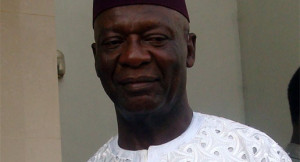Qatar 2022: African Football Figures Implicated in World Cup Corruption Claims
A number of prominent African football officials have been implicated in fresh allegations of corruption linked to Qatar’s successful bid to host the 2022 World Cup. According to a detailed investigation by The Sunday Times, several officials allegedly received payments or gifts from former Qatari football executive Mohammed Bin Hammam in a suspected attempt to influence votes.
Among the accused is Anjorin Moucharafou, former president of the Benin Football Federation and a CAF executive committee member. He was reportedly part of a 2008 trip to Kuala Lumpur, Malaysia, where 25 African officials were allegedly given up to $200,000 in cash, with Moucharafou named as one of four individuals who received direct transfers.
Lydia Nsekera, Burundi’s former FA president and the first woman to serve on FIFA’s executive committee, was cited as attending a similar Bin Hammam-funded trip in October 2008. Guests were allegedly handed $5,000 on arrival, alongside Nike gift bags in their luxury hotel rooms.
Togolese General Seyi Memene, CAF vice-president at the time, allegedly received $22,400 to fund a pilgrimage to Mecca with his wife in 2008.

Seedy Kinteh, then head of the Gambia Football Association, reportedly emailed Bin Hammam after the 2009 FIFA Congress in the Bahamas, asking for financial assistance. Shortly after, he allegedly thanked the Qatari for a $10,000 transfer, followed by another $50,000 that reportedly came from an account linked to Bin Hammam’s daughter.
Moroccan football official Said Belkhayat was also named. The Sunday Times published email exchanges indicating he provided personal banking details to Bin Hammam’s close associate, Najeeb Chirakal, though the purpose of the transfer remains unclear.
Crucially, three key African members of FIFA’s executive committee at the time—Issa Hayatou (CAF President), Jacques Anouma (Ivory Coast), and Amos Adamu (Nigeria)—are said to have been heavily courted. The trio reportedly received $400,000 transfers from Bin Hammam-controlled funds under the guise of FIFA development programmes. Their federations were also said to have benefited from exclusive deals, including a $1 million sponsorship of CAF’s 2010 Congress in Angola.
Further, during the 2010 World Cup in South Africa, Bin Hammam allegedly footed the bill for luxury hotel stays and provided match tickets worth thousands of dollars for the three officials. They also reportedly used a private jet arranged by the Qatari to attend discreet meetings in Doha and Cairo.
Even Liberia’s George Weah, a former FIFA World Player of the Year and influential football figure, was drawn into the controversy. According to the report, Weah sent his banking details to Chirakal in 2010, and a $50,000 payment was allegedly deposited into his account shortly thereafter.
While all named individuals have denied wrongdoing or declined to comment, the revelations have raised renewed concerns over the transparency of FIFA’s World Cup bidding process and Qatar’s path to securing the tournament.












